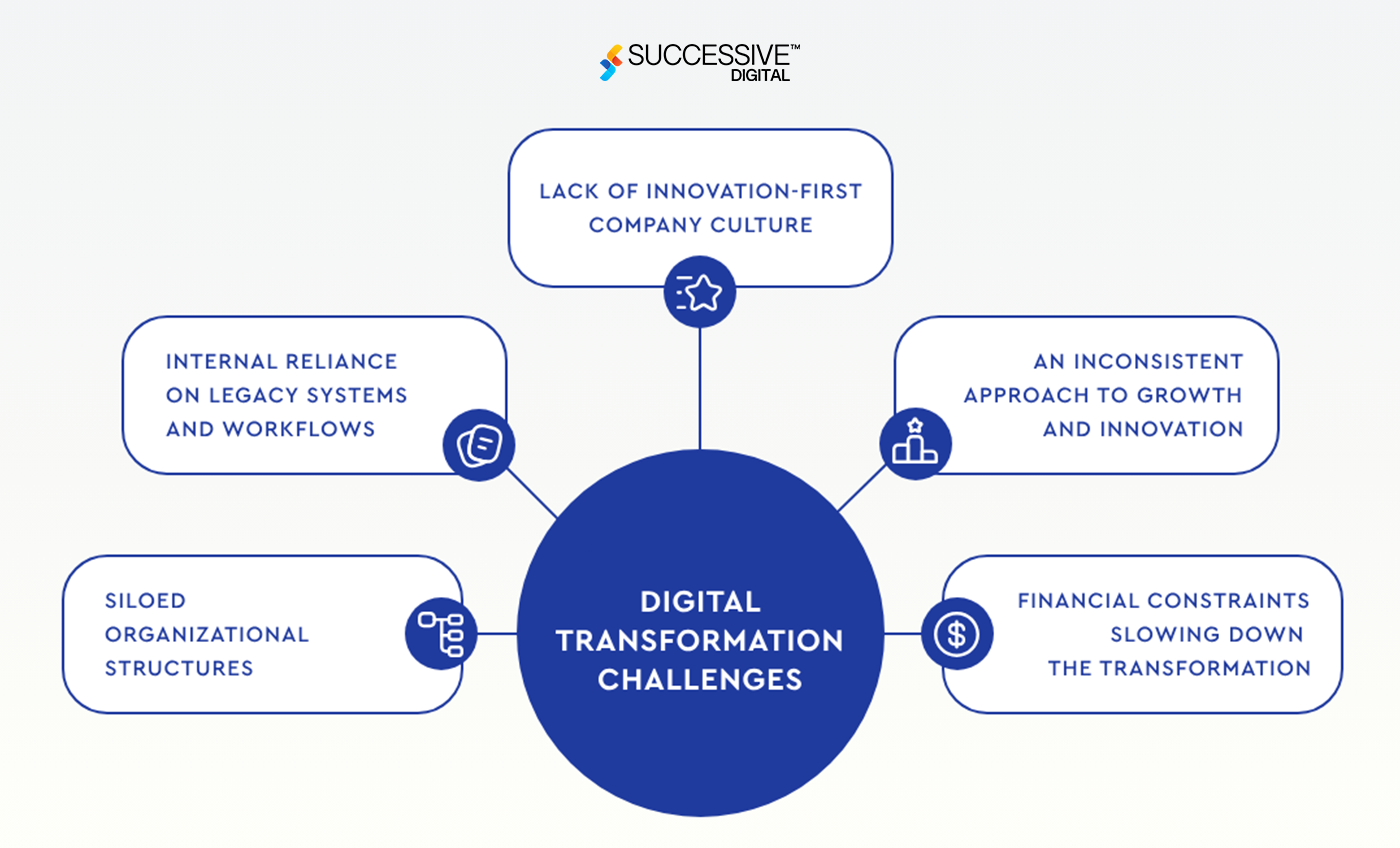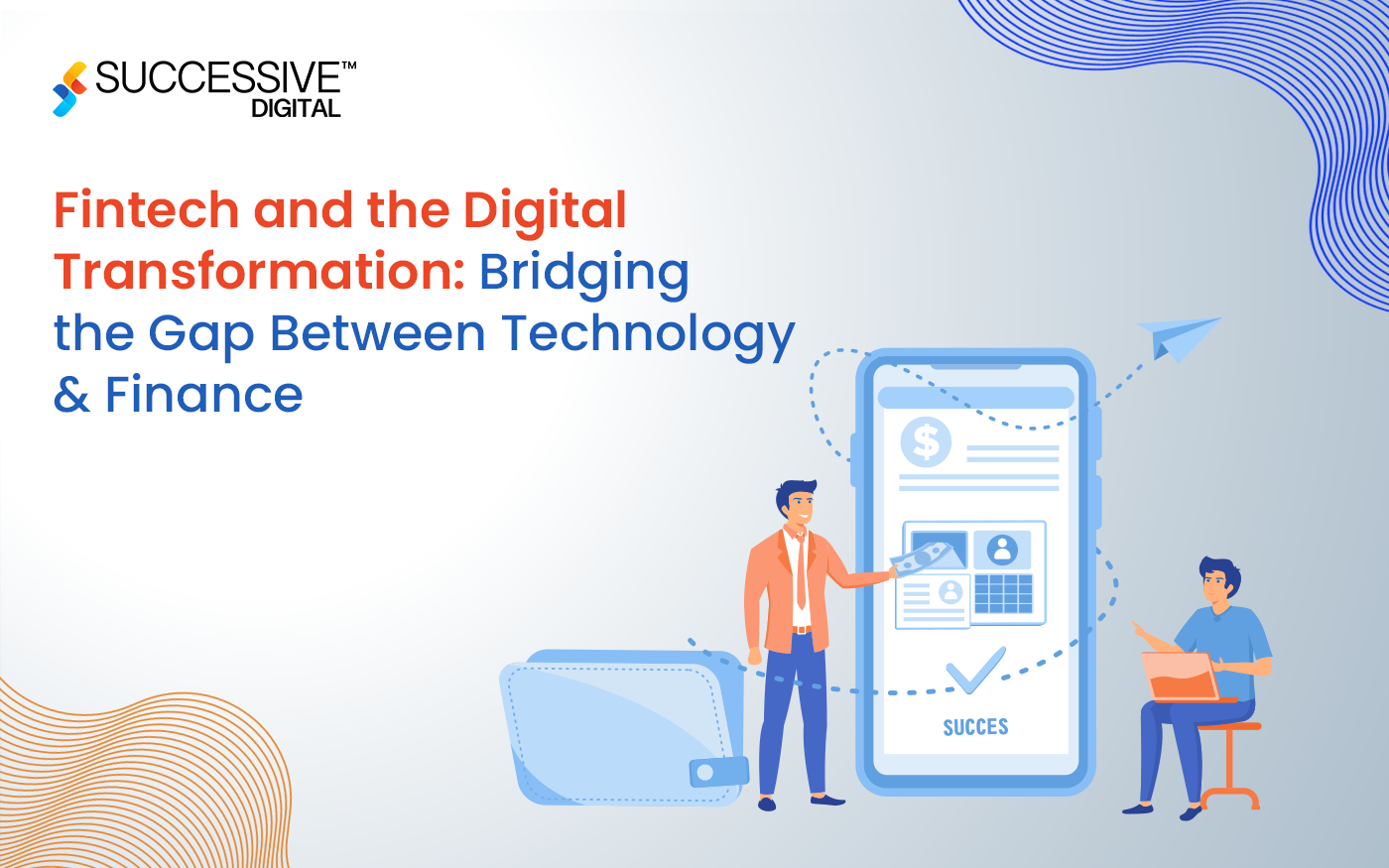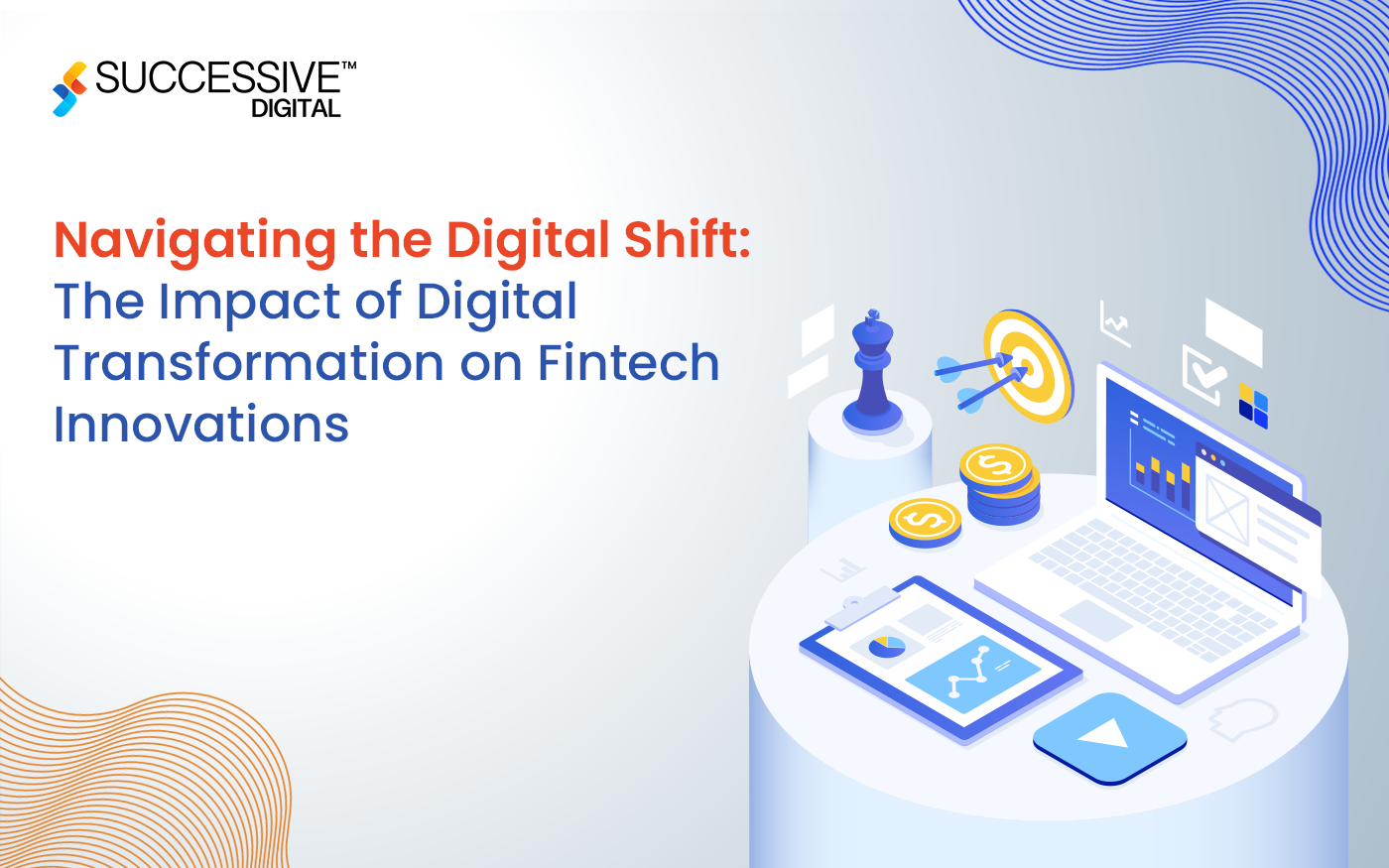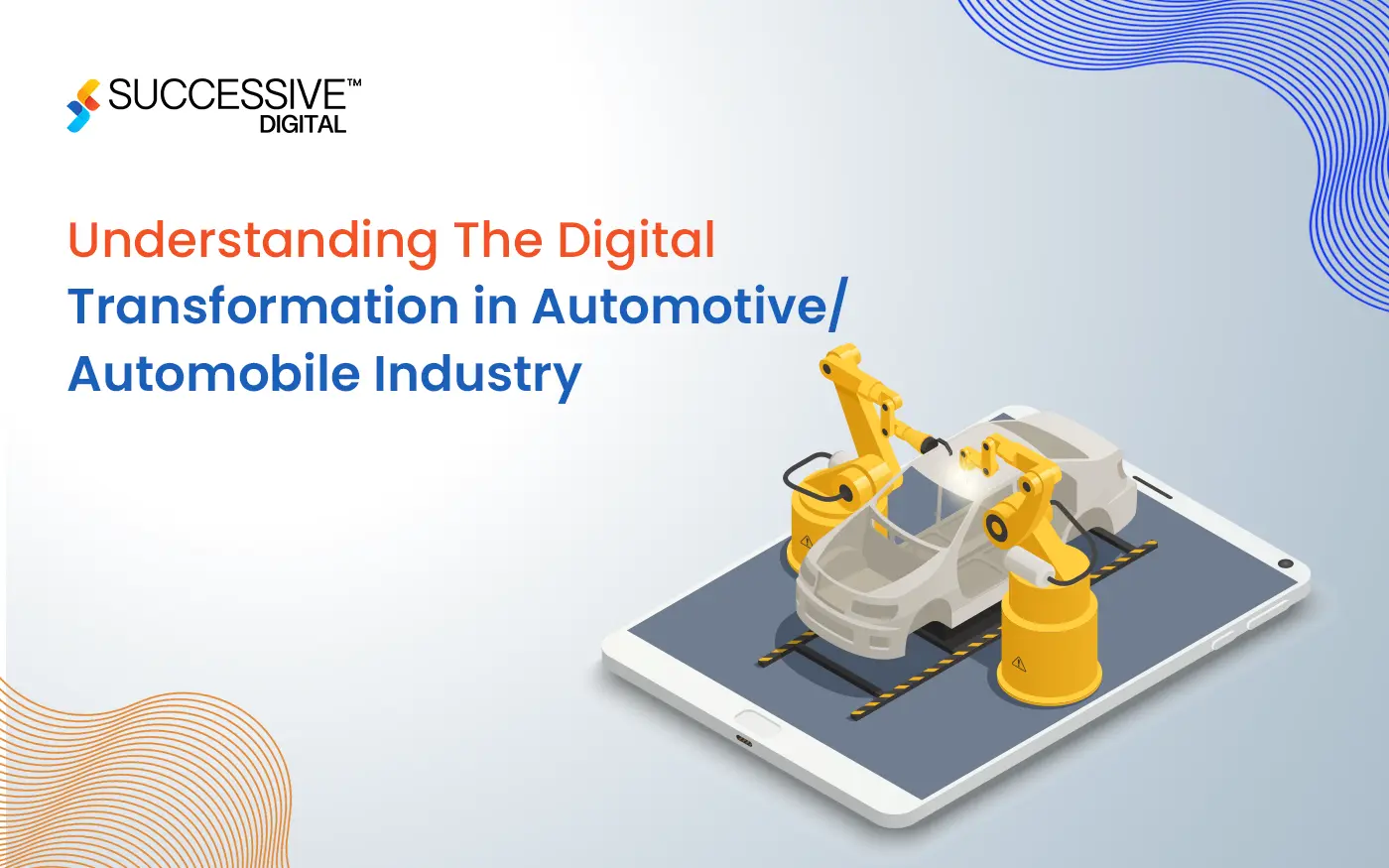The concept of digital transformation for enterprises has emerged as a shifting dynamic in today’s business panorama, reshaping industries, processes, and customer experience. Digital transformation goes beyond mere technology adoption; It represents a significant shift in how companies operate, innovate, and deliver value in the digital age. This comprehensive blog will discover all aspects of the enterprise digital transformation, from its definition and scope to its core features, benefits, required conditions, case studies, and future path.
Definition and Scope of Enterprise Digital Transformation:
In the current business dynamic, enterprise digital transformation represents a significant shift in how businesses operate and innovate in the digital age. This includes developing strategies for traditional business transformation using digital technologies to drive productivity, agility, and customer focus. Beyond technology adoption, digital transformation is an entire project that affects every aspect of the company, from customer interaction to professional performance.
Key Components of Enterprise Digital Transformation:
Technology Integration:
Integrating digital technologies is critical in implementing enterprise digital transformation. This includes using software solutions and platforms such as organization-friendly resource management (ERP), customer relationship management (CRM), and supply chain management. Seamless integration and authentication allow sharing and communication for informed decisions and rapid responses to market changes.
Data-Driven Decision-Making:
Data lies in the center, empowering organizations to make informed choices based primarily on actionable insights. Organizations can store and analyze data using the best analytics tools and techniques. This enterprise digital strategy pushes the basic methodology of digital transformation for enterprises and enables companies to identify improvements, anticipate customer desires, optimize processes, and explore new business opportunities. Companies can leverage aggressive participation, inspire innovation, and achieve sustainable growth in today’s data-driven economy by leveraging data analytics.
Enhancing Customer Experience:
Improved customer experience (CX) is an integral part of pursuing digital marketing effectiveness. This process goes beyond just interactive communication; It includes a commitment to building meaningful and lasting relationships with every customer. Through empathy and innovation, companies are taking bold steps to create immersive, personalized, and simple reports that resonate with their audiences.
At the CX core, insight into the client’s desires, possibilities, and aspirations is provided. From streamlined interfaces to dynamic support channels, companies that leverage virtual technologies’ power and data insights to number customer goals, tackle pain points and exceed expectations in every interaction that inspires customer pride and develops loyalty.
The quest to improve customer experience extends to digital channels across the customer journey. Organizations strive to deliver seamless, connected brand experiences across multiple touchpoints through omnichannel integration and holistic engagement strategies.
Culture and Talent Development:
Successful digital transformation for enterprises requires more than just technology integration; This includes cultural change and skills development. Companies must lead a lifestyle of innovation, collaboration, and relentless knowledge to succeed in the digital age. This includes creating an environment where employees can experiment, take risks, and incorporate change. In addition, companies should invest in skill development applications, educational programs, and cross-functional collaborations to equip employees with the experience and mindset needed to access the digital-first world.
Benefits of Enterprise Digital Transformation:

-
Increased Efficiency and Productivity:
Digital transformation for enterprises streamlines operations, automates manual tasks, and improves efficiency, especially for enhanced productivity and profitability across the enterprise. By leveraging digital technologies, companies can eliminate unnecessary processes, reduce errors, and recreate resource management to innovation for long-term results.
-
Improved Customer Experience:
Enterprise digital strategy enables organizations to deliver a personalized, seamless omnichannel experience that delights customers and drives loyalty. By leveraging data analytics and AI-powered insights, teams can lean on customer interests, personalize interactions, and exceed expectations at every touch point, especially for better customer loyalty and retention.
-
Business Efficiency and Innovation:
Digital transformation fosters an innovative and agile lifestyle, enabling organizations to react faster to market research, test new ideas, develop transformative projects and products, and sell faster. Embracing agile approaches, cross-functional collaboration, and iterative improvement, businesses can evolve with customers and adapt to their changing desires for staying ahead of the competition in an innovative, rapidly changing business environment.
-
Improved Decision Making:
Data-driven insights and analytics empower enterprise digital transformation framework with higher-knowledgeable decisions, optimize procedures, and look-out for new opportunities of optimization. By harnessing the power of data analytics, brands can take advantage of a deeper knowledge of their customers, market traits, and competitive landscape, allowing them to make strategies that reap business success.
-
Competitive Advantage:
Organizations incorporating digital changes have a significant competitive advantage in today’s fast-growing economy. By leveraging digital technology to differentiate themselves from peers, organizations can outperform competitors, capture market share, and drive sustainable growth. Whether delivering new products, offering customer-centric experiences, or streamlining operations, digital transformation enables companies to lead the curve and be at the forefront of their industry.
Successful Case Studies:
Amazon: As one of the pioneers of the digital revolution, Amazon transformed the retail landscape by leveraging generation and statistical analytics with AI, machine learning, and cloud computing. Amazon provides personalized recommendations, optimizes pricing, and simplifies shipping to ensure customers enjoy and sustain their shopping experience.
Netflix: Netflix has revolutionized the entertainment industry by adopting virtual conversion. Using content analytics and AI-powered algorithms, Netflix analyzes consumer behavior, choices, and viewer browsing history to recommend personalized content, optimize streaming quality, and create unique programs that the target audience resonates with.
Nike: Nike is the flagship international sports footwear and apparel company, and it embarked on a digital transformation journey to align its direct-to-consumer (DTC) capabilities. The company launched many ecommerce and digital initiatives that followed a significant increase in online revenue and customer engagement. The organization benefited from customer data insights to optimize displays and merchandise advertising campaigns that successfully improved stock control and, in the long run, enhanced sales growth of the brands.
Maersk: Maersk, the world’s largest container transportation enterprise, has embraced digital restructuring to modernize its logistics business and increase efficiency. By introducing digital technologies, including IoT sensors, blockchain, and statistical analytics, Maersk streamlined its distribution chain processes, reduced office work, and improved shipment visibility. This enabled the company operations to become more accessible, lowering fees and creating better providers for customers.
Starbucks: The leading global coffee chain has used digital transformation to refine its customer experience and loyalty. Starbucks offers its customers personalized recommendations, mobile ordering, and rewards through its intuitive, user-friendly app. Integrating digital technology into its brick-and-mortar stores, Starbucks delivers an unparalleled omnichannel experience, allowing customers to save in advance, earn rewards, and pay with their smartphones.
Challenges of Enterprise Digital Transformation:
Legacy Systems and Infrastructure:
Outdated legacy infrastructure creates huge, complex environments for digital transformation projects. Integrating new technology into current systems, migrating records, and ensuring interoperability can be complex and invaluable sometimes.
Change Management and Cultural Resistance:
Resistance to change and cultural dynamics can hinder the attempt of digital shift. Overcoming organizational silos, fostering a culture of innovation, and stakeholder buy-in are important components of successful digital transformation for enterprises.
Data Security and Privacy Concerns:
With data breaches and cyber threats rising, ensuring data security and privacy is a top priority for organizations undergoing virtual transformation. Robust enforcement, compliance with regulatory requirements, and protection of sensitive data and information are important issues.
Talent Shortage and Skills Gap:
In the complex landscape of a modern organization, scarcity of talent and ever-widening skills become conditions of challenge. This goes beyond mere ideal recruitment barriers; It also includes a broader paradigm shift in human capacity and physiology toward the digital ecosystem. In the age of rapid growth and business practices, companies are constantly looking for skilled workers who can navigate the challenges of the digital age. From statistical analytics to cybersecurity, cloud computing to AI requires some basic information to get knowledgeable pool outpaces, supply, and demand between growing tangible differences.
Outlook of the Future
Implementing digital enterprise transformation solutions requires a holistic technology approach, conceptual and predictive farmwork, and commitment from management to drive meaningful alternatives to create value for customers and stakeholders.
By embracing digital technologies, adapting processes, and fostering a tradition of innovation, organizations can meet challenges, exploit possibilities, and find lasting momentum in an increasingly realistic global digital space.













